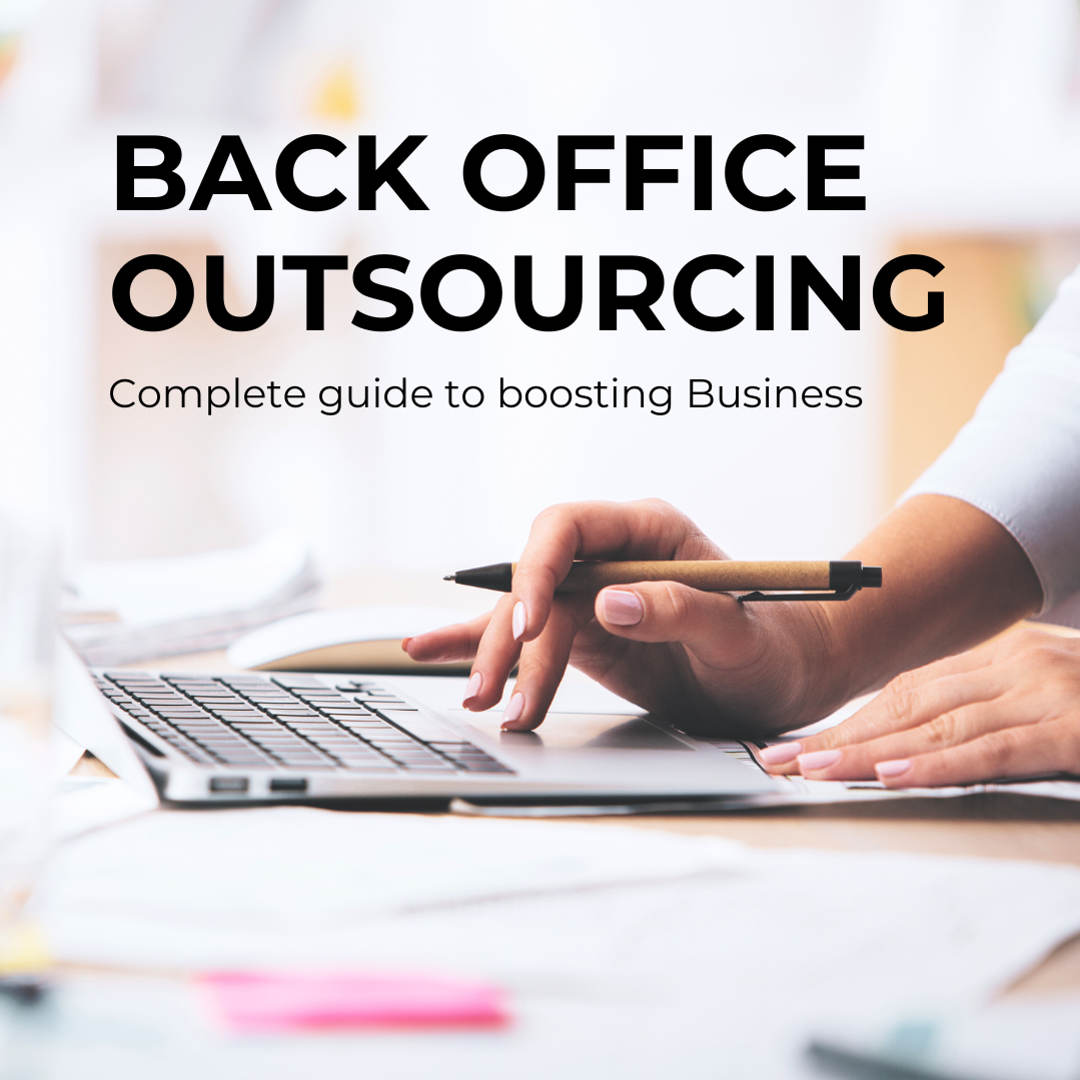CATEGORIES
#Entrepreneurial Mindset #Entrepreneurship #TechnologyOverview:
- Back-Office Outsourcing involves hiring third vendors for behind-the-scenes tasks that support the office front.
- Front and Back-Office Outsourcing are key practices that fall under Business Process Outsourcing.
- Back-Office Outsourcing companies help reduce resources, save costs, enhance efficiency, etc., and promote company growth.
- Proper implementation of Back-Office Outsourcing requires an open conversation about expectations between vendor and company.
What Is Back-Office Outsourcing?
Back-office outsourcing involves hiring a third-party company to handle the behind-the-scenes tasks of your business that support the office front. The company handles tasks from various departments and is not involved in dealing with the clientele or services to customers.
Various Back office tasks include:
- Administrative tasks: Payroll, Human resources, accounting, financial reporting, data entry and data analysis
- Support Functions: IT, supply chain, and internal communications support
- Data Collection: bookkeeping, sales tax management, and document imaging.

Front Office vs Back-Office Outsourcing
Business process outsourcing(BPO) is contracting non-core business operations to third-party vendors. BPO is an umbrella term that includes practices such as front-office and back-office outsourcing.
Front office outsourcing is the practice of hiring a third-party company for client support or customer services. These services include sales, marketing, tech support, customer service, or any other administrative task that involves direct contact with clients.
Back-office outsourcing entails hiring third-party vendors to handle back-office tasks that do not involve customer interaction and client services. These tasks boost the core business practices that are directly involved with the company’s reputation and product manufacturing.
Benefits of Back Office Outsourcing
Back-office outsourcing practices improve efficiency, reduce costs, and improve the overall functioning of a company. Here are some of the benefits of back-office outsourcing in detail:
Efficiency
Hiring an efficient and well-experienced back office company helps streamline operations and find solutions to inefficient practices present. These companies have all the technical and administrative support to make your company operations smoother and overall efficient.

Saves Resources
Back-office outsourcing companies usually have their own administrative and technical setups that help them to do their tasks. This helps to save resources by not spending on new employee equipment and dedicating available resources to core business activities.
Reduces Costs
When you hire a BPO company for non-customer service tasks, you are getting a team of experienced professionals. This helps you save salaries, benefits, and other costs by hiring a group of individuals that accelerate workflow. Strategic BPO location strategies allow businesses to reduce costs by outsourcing to regions with lower labor costs yet high expertise.
Boosts Time Efficiency
The third-party vendors are entrusted with routine tasks of the company. This helps the team to focus all their time on tasks that are involved in business management and administration.
Offers Stability
For a new company trying to boost its presence and develop a loyal customer base, back-office outsourcing companies offer stability. They take care of tasks that back up core business practices and are also not involved in customer services. It also helps to focus on tasks that include innovations, problem-solving, and developing new solutions to drive success.
Key Steps for Implementing Back Office Outsourcing
To successfully outsource back-office functions, it’s crucial to follow a structured approach:
Define Your Goals
It is important to evaluate administrative and other behind-the-scenes tasks that are not central to a company’s operations. This helps to prepare a list of tasks and limit your search to companies that provide such services.
Research and Level of Expertise
Researching the company and the type of services it provides are important steps in hiring a back office outsourcing company. It’s important to know the level of expertise of professionals and if they have the resources to meet your needs.
Define Service Level Agreements
Service Level Agreements (SLAs) help to establish expectations for performance, efficiency, and reporting. These agreements provide clear framework of accountability that ensures that both the business and the provider are aligned on expectations.

Maintain Open Communication
It is important to maintain open communications to help ensure the smooth operation of company tasks. Regular meetings, daily reports, and feedback sessions help to improve performance, prevent misunderstandings, and help to reach goals fluently.
Ensure data security
Data security is highly important when entrusting your company’s data to third-party vendors. It is important to sign a confidentiality agreement and take all data security measures to prevent any data breach.
Conclusion
Back Office Outsourcing helps to streamline operations, reduce costs, save resources, and increase efficiency. Carefully selecting the right provider, reaching a settlement, and setting expectations can help to reach administrative goals. While challenges exist, a well-implemented outsourcing strategy can lead to significant improvements in productivity, scalability, and overall business performance.
FAQs:
How does back-office outsourcing help reduce costs?
Back-office outsourcing helps reduce costs by providing a team of skilled professionals at a fraction of the expense of hiring full-time. It also saves on infrastructure, training, and equipment costs.
What are the key steps for implementing back-office outsourcing?
To implement back-office outsourcing, start by defining your goals, researching potential vendors, and establishing clear SLAs. It’s important to maintain open communication and ensure data security measures are in place.
What types of tasks can be outsourced in the back office?
Back-office tasks that are commonly outsourced include administrative functions like payroll, HR, data entry, accounting, IT support, and data processing.

